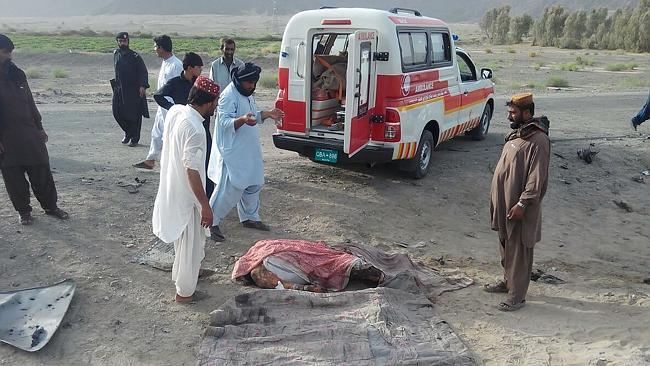Drone takes out Taliban leader Aktar Mansour in Pakistan
Taliban leader Aktar Mansour is believed to have been killed in a US drone strike.

Taliban leader Aktar Mansour has been killed in a drone strike authorised by US President Barack Obama.
Mullah Mansour and another Afghan Taliban fighter were in a vehicle bombed by multiple drones as they were moving along a road outside the Pakistani town of Ahmed Wal, south of Quetta.
The Pentagon confirmed it targeted Mansour yesterday. Taliban commander Abdul Rauf and Afghanistan’s National Directorate of Security confirmed Mansour had been killed late on Friday.
“Mansour has been an obstacle to peace and reconciliation between the government of Afghanistan and the Taliban, prohibiting Taliban leaders from participating in peace talks with the Afghan government that could lead to an end to the conflict,” said Pentagon spokesman Peter Cook.
The US informed Pakistan and Afghanistan shortly after the strike, a White House official said.
William Maley of the Australian National University said Mansour’s demise was “good riddance to bad rubbish”.
“The Taliban is a group that engages in indiscriminate terror activities directed against civilian targets within Afghanistan. The elimination of Mullah Mansour holds out the prospect of disrupting the organisational structures which have underpinned those terrorist attacks,” Professor Maley told The Australian.
“This is much more significant than the prospects of negotiated arrangements with the Taliban, which I think has always been wishful thinking of the dreamiest possible variety.”
He said it also sent a strong message to Pakistan, “which has failed to deliver on any commitment to produce the Taliban for serious negotiations”.
“If it doesn’t co-operate there’s the alternative approach of strikes against Taliban leaders.”
He said Mansour’s death would create instability within the Taliban, which had fractured since last year’s announcement of the death of the previous leader, Mohammad Omar. “There is very considerable prospect of in-fighting from this,” he said.
Samina Yasmeen of the University of Western Australia, said Mansour’s death had made the prospect of a negotiated settlement with the Taliban unclear and “suggests an unstable future”.
Mansour had been concerned by Islamic State “making inroads”, in Afghanistan, she said. “Now that he is killed those groups could be emboldened. Meanwhile pro-negotiation factions would also question the logic of participating in quadrilateral talks (with the Afghan government, Pakistan, China and the US).”
Mansour was born in the 1960s in Kandahar province and was the civil aviation minister during the extremists’ rule. According to the UN, he played an active role in drug trafficking. His death could hurt Taliban’s finances because the drug trade is the major income source for the group.
There were suspicions within the Taliban that Mansour had killed Omar and kept his death secret, which led to a split in the organisation.
Afghan journalist Bilal Sarwary said now Mansour was gone there was a chance that the various factions of the Taliban could reunite.
“This is something that some Afghan officials here are saying,” he said. “They’re telling me that because he was accused of hiding Mullah Omar’s death, he was accused of killing Mullah Omar, a lot of the Mullah Omar’s key lieutenants took an issue with him.”
Sirajuddin Haqqani is likely to take over the leadership of the Taliban and Sarwary said this could lead to more gruesome attacks, as he was a brutal and experienced commander.
The Haqqani Network is a Pakistan-based terrorist organisation and is believed to have been responsible for some of the deadliest attacks on Coalition forces in Afghanistan.
“With Haqqani comes the danger of more lethal attacks,” Sarwary said. “Sirajuddin Haqqani has better contacts with al-Qa’ida, his father was close to al-Qa’ida, his mother is from Yemen. It’s a huge challenge also because of the links that the Haqqanis have with the Pakistani army and intelligence agencies.”
Professor Maley said while the drone attacks to take out the Taliban leader had taken place within Pakistan’s borders it had little cause to complain.
“I don’t think the Pakistanis will find too much sympathy if they were to start talking about the violation of their sovereign rights,” he said.
“It may well be that the Pakistanis are encountering some pressure … not just from the Americans but also from the Chinese.
“China has good reason to worry about the possibility that radicalism might reach out of the Taliban movements in Pakistan and find its way Xinjiang.”


